Every Wilco Album, Ranked

- Oops!Something went wrong.Please try again later.
- Oops!Something went wrong.Please try again later.
When Uncle Tupelo, an Illinois band that was enormously influential on the development of the alt-country movement, broke up in 1994, four-fifths of their final lineup quickly formed Wilco. Since then, singer/guitarist Jeff Tweedy and bassist John Stirratt have been the only constant members, but have realized their restless artistic vision thanks to a series of world-class collaborators.
For the past 20 years, Wilco’s six-piece lineup anchored by avant garde guitarist Nels Cline has released a host of adventurous albums touching on hushed, confessional folk songs and ragged noise rock, sometimes within the same song. They’ve sometimes been derisively painted as the modern standard-bearers of “dad rock” for their strong appeal to music critics and aging indie rockers, but Wilco never seem to stop challenging themselves and their audience, and will release six new songs on the Hot Sun Cool Shroud EP on June 28.
More from Spin:
Hear Wilco Cover David Bowie For ‘Mountain Stage’ Compilation
Wilco Enlists Jason Isbell, Wednesday For Solid Sound Festival
One of Tweedy and company’s more divisive releases, A Ghost Is Born, was released on June 22, 2004. Looking back on the album’s 20th anniversary, where does it rank in Wilco’s discography?
16. Star Wars (2015)

When you listen to an official soundtrack album for a Star Wars film or series on Spotify, the progress bar at the bottom of your screen changes to a glowing lightsaber. Wilco’s Star Wars is not affiliated with George Lucas’s blockbuster franchise in any way (the band were prepared to rename the album Cease and Desist in the event of legal action), but through a glitch or lack of oversight, you get the lightsaber here too. At 33 minutes, Star Wars is the shortest album in the Wilco catalog, and it feels like the playful set of fuzz rock jams was made to match the whimsical title and cover art, for better and for worse. There are novel textures all over, and “You Satellite” has a particularly lively second half. “Where Do I Begin” feels like the only song that would’ve stood out as a compelling lyric and melody on one of Wilco’s stronger albums.
15. Wilco (The Album) (2009)
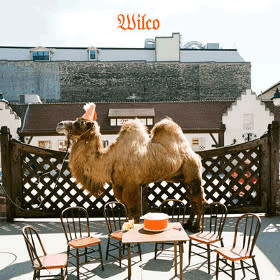
Wilco (The Album) and its opening track “Wilco (The Song)” feel like the turning point where a winking absurdity started to become a defining feature of Wilco’s output, as if Tweedy wanted to tear away any tortured genius mystique he’d accidentally cultivated. It’s a hit-and-miss record, but the highlights hit hard, and “One Wing” and “Solitaire” feature killer Cline solos. It’s also rich in lovely vocal harmonies, from Leslie Feist on the single “You And I” and from Crowded House’s Neil Finn on several tracks recorded in his New Zealand studio. “Wilco (The Album) is a good, concise distillation of the band’s strengths. It is not their best work, mainly because it lacks the audacity of their four previous efforts,” wrote Matthew Perpetua in the Pitchfork review.
14. Mermaid Avenue Vol. II with Billy Bragg (2000)
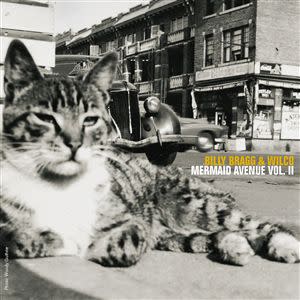
When folk music giant Woody Guthrie died in 1967, he left behind written lyrics for hundreds of unrecorded songs. Decades later, his daughter Nora began drafting a new generation of musicians to finish and record those songs, starting with British folk singer Billy Bragg. Bragg in turn asked Wilco to collaborate on the project, and from 1995 to 1999 they worked on dozens of Guthrie compositions that resulted in two albums (a third disc of songs was released as part of Mermaid Avenue: The Complete Sessions in 2012). The albums showcase the late Jay Bennett at his most versatile, jumping from banjo to mandolin to harmonica to a dozen other instruments. Vol. II feels a bit less essential than its predecessor for Wilco fans who don’t also love Bragg, as Tweedy only sings lead on six of 15 songs, but “Secret of the Sea” sounds like it would’ve fit right in on Summerteeth.
13. Down With Wilco with the Minus 5 (2003)
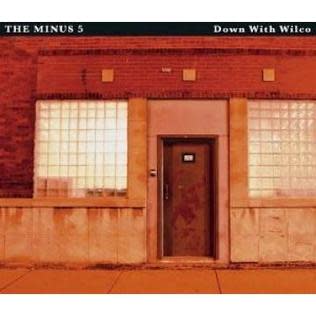
Young Fresh Fellows frontman Scott McCaughey and R.E.M.’s Peter Buck formed the Minus 5 in 1993, and have since made more than a dozen albums with a rotating all-star cast of musicians from prominent alternative rock bands. For their firth album, McCaughey and Buck went to Chicago and recorded with Wilco as their backing ensemble. It’s the kind of record that only the most hardcore Wilco completist might seek out solely for their involvement, as Tweedy co-wrote just three songs and briefly sings lead on “The Town That Lost Its Groove Supply” and “The Family Gardener.” It’s a worthwhile listen, though — a showcase of the kind of wryly bleak lyrics, bright melodies and lush arrangements that have made McCaughey into a cult hero with a Rolodex full of famous friends. Mikael Jorgensen, who engineered this project, would soon join Wilco as a keyboard player.
12. Ode to Joy (2019)
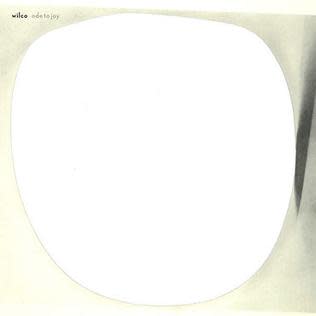
Ode to Joy’s sessions began with Tweedy and drummer Glenn Kotche recording basic tracks as a duo, and then bringing in the other four members of Wilco for overdubs. For most of the album, the band treads lightly, as if trying not to drown out Tweedy’s subdued melodies and delicate vocal performances. Occasionally, the band finds open space to fill, leading to arresting moments such as the climax of “We Were Lucky” or the blossoming textures of “Love Is Everywhere (Beware).”
11. A.M. (1995)
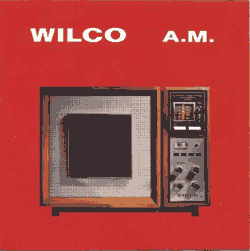
When Jay Farrar left Uncle Tupelo to form Son Volt, the other members of the band remained with Sire Records and Anodyne producer Brian Paulson, picked a new name and recruited Bottle Rockets guitarist Brian Hanneman to complete their lineup. For those who cared to take sides in the Farrar/Tweedy split, Son Volt’s 1995 debut Trace was decisively more successful than A.M., both commercially and critically, but it would be the last time Wilco was overshadowed by their former bandmate. A.M. makes sense more now as a continuation of Uncle Tupelo than what we think of now as Wilco, with an emphasis on the band’s Neil Young-influenced side, and “I Thought I Held You” and “Passenger” are gems of Tweedy’s alt-country repertoire. “The only thing they lack is a truly memorable song that rises above high-level competence and knocks you dead,” Tony Scherman wrote in the Entertainment Weekly review of A.M.
10. Cousin (2023)

“I’ve always been afraid to sing,” Tweedy intones in a near-whisper on “Pittsburgh,” from his 13th album as the lead singer of Wilco. “Somehow, that’s all I do, strange as that seems.” Cousin, which was produced by Welsh singer/songwriter Cate Le Bon, may have the most empty space of any Wilco album, pulling even further back from the restraint of Ode to Joy. It feels like a deliberate choice that often suits material such as “Ten Dead,” a song about school shootings with a queasy, uncomfortable ambiance to match the lyric.
9. Schmilco (2016)

Though the name is a playful homage to Harry Nilsson’s 1971 classic Nilsson Schmilsson and the cover art is a silly comic strip, Schmilco sounds like one of Tweedy’s most intimate and personal albums. The tales of childhood and insistent acoustic strumming on “Cry All Day” and “Nope” provide a vulnerable, homespun feel even in the context of Wilco’s catalog. When the discordant avant rock of latter-day Wilco makes appearances on “Common Sense” and “Locator,” it’s a jarring but enjoyable reminder of how wide the band’s interests are. “Schmilco is Wilco’s most musically simple and emotionally resonant record in a decade, gorgeously naked and efficient,” wrote Josh Modell in the AV Club review.
8. Cruel Country (2022)
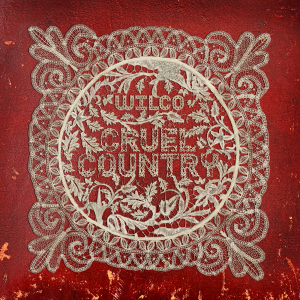
The title of Cruel Country can be read two ways. It’s primarily intended as a critique of American politics and imperialism (“I love my country, stupid and cruel / Red, white and blue,” Tweedy sings on the title track). Wilco’s longest album, edging out Being There by just 18 seconds, also brought the band closer to wholeheartedly embracing their country influences than any release since the mid-‘90s. It’s almost as if the band spent two decades breaking out of being pigeonholed as “alt-country” until they could feel uninhibited about writing songs as conventionally twangy as “Falling Apart (Right Now)” or “A Lifetime To Find.”
7. A Ghost Is Born (2004)
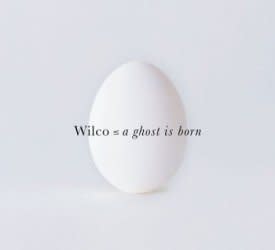
In 2004, Tweedy’s longtime stuggles with chronic migraines and anxiety, and resulting dependence on painkillers, came to a head, and Wilco’s frontman entered rehab, delaying the release of A Ghost Is Born and forcing the postponement of a tour. In that context, A Ghost Is Born is an intense album made in part to express what Tweedy was going through — he called the guitar solo on “At Least That’s What You Said” a transcription of one of his panic attacks, and made the droning outro of the 15-minute “Less Than You Think” as an audio representation of his migraines. Recorded after the departure of Bennett and before the addition of Cline, A Ghost Is Born stands alone as the only Wilco album with Tweedy as the band’s lead guitarist. This brief, fruitful phase produced great moments like Tweedy’s Tom Verlaine-influenced solos on the hypnotic “Spiders (Kidsmoke).” It’s also the only Wilco album produced by Jim O’Rourke, who also mixed Yankee Hotel Foxtrot and played on Sky Blue Sky. Arguably Wilco’s most confrontationally experimental album, A Ghost Is Born also features a handful of accessible songs such as the piano-driven “Theologians.” Wilco won their only Grammy in seven tries with A Ghost Is Born, which was named Best Alternative Music Album.
6. Mermaid Avenue with Billy Bragg (1998)
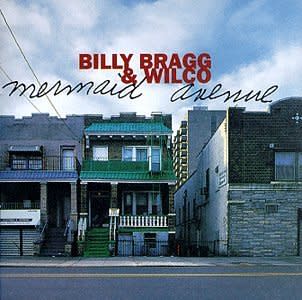
At the time of its release, Mermaid Avenue was by far Wilco’s most acclaimed and high-profile project, hailed by critics for revitalizing and expanding upon Guthrie’s legacy. Wilco have spent much of the time since then distancing themselves from the image it earned them as neo-traditionalist caretakers of American roots music. The way the band approaches Guthrie’s lyrics, sometimes with appropriately rootsy backing and at others with invigorating, modern arrangements, is a testament to early Wilco’s versatility and ingenuity, and “California Stars” remains perhaps the loveliest piece of music Tweedy and Bennett wrote together. “Those melodies, from just below the surface of the American pop tradition or from the true depth of the British folk tradition, float Guthrie’s screeds, stories and musings off into a realm where he is freed from his legend,” Greil Marcus wrote in the Rolling Stone review of Mermaid Avenue.
5. Summerteeth (1999)

Wilco’s self-produced third album represented the peak of Tweedy and Bennett’s collaborative chemistry, with the latter co-writing all but one song here. In fact, the duo spent so much time layering dozens of instruments and assembling tracks on ProTools that the live band dynamic of their earlier albums fell by the wayside. “There wasn’t really a band — just two guys losing their minds in the studio,” original drummer Ken Coomer said in Greg Kot’s 2004 biography of the band, Wilco: Learning How To Die. The result is still an album rich with extravagantly detailed arrangements and psychedelic ear candy, like Wilco’s answer to the Beatles’ Abbey Road or Elvis Costello’s Imperial Bedroom. Reprise Records, looking to break Wilco on rock radio, remixed the catchy opening track “Can’t Stand It,” but the album struck a chord more with downtempo songs such as the haunting “How To Fight Loneliness,” prominently featured in the Oscar-winning film Girl, Interrupted.
4. The Whole Love (2011)

In 2011, Wilco founded dBpm Records to release their own albums via the Alternative Distribution Alliance. The Whole Love, the label’s first release, feels a little like a celebration of the band’s complete artistic freedom after earlier battles for creative control. The glitchy, unpredictable opener “The Art of Almost” is the exact kind of song that would’ve sent major-label executives into a panic, but the album, which Tweedy and multi-instrumentalist Pat Sansone co-produced with Tom Schick (M. Ward, Iron & Wine), is varied and often warmly inviting. “Standing O” bursts out of the speakers like a ‘90s Wilco rocker, and the 12-minute closer “One Sunday Morning (Song for Jane Smiley’s Boyfriend)” is a beautifully engrossing sprawl of a song.
3. Being There (1996)
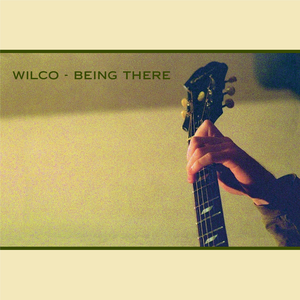
A double album is something a band usually doesn’t attempt until they’re a few years into their career, when they’re well-established and ready to serve an eager fanbase a big, ambitious collection of songs. Just a year after the cool reception to their debut, Wilco took an early big swing with a 19-song double disc that decisively brought the band out of the shadow of Uncle Tupelo. The addition of a skilled multi-instrumentalist like Bennett to the lineup lends a kitchen-sink eclecticism to the album, from the relaxed groove of “Kingpin” to the scrappy Replacements-style clatter of “Monday” and “Outtasite (Outta Mind).” Elsewhere, the slowly building opener “Misunderstood” presages the noisier experiments of later efforts, while “I Got You (At the End of the Century),” “Say You Miss Me” and “Sunken Treasure” sport the kind of beautiful and affecting melodies Tweedy often seems capable of effortlessly bringing forth into the world. “Where the first collection maintained a near-uniform emotional solidity, the new behemoth trades unity in for riskier mood swings,” Sarah Vowell wrote in the SPIN review of Being There.
2. Yankee Hotel Foxtrot (2002)

In late 2000, Wilco began recording their fourth album. By the end of 2001, two longtime members, Bennett and Coomer, were out of the group, and Wilco had been released from their contract with Reprise Records due to creative disputes. Over that tense year, Tweedy doggedly pursued his vision for Yankee Hotel Foxtrot, recruiting O’Rourke as a mix engineer and multi-instrumentalist and Kotche as the band’s new drummer. The result was an inventive and challenging album, with songs like “Jesus, Etc.” and “I Am Trying To Break Your Heart” unlike anything Wilco had released in the ‘90s. Circulating on MP3 in the Napster era, the album gained a passionate fanbase well before anyone was able to buy it. Once the band secured a new contact with Nonesuch Records, Yankee Hotel Foxtrot quickly became Wilco’s best-selling release, eventually going gold for U.S. shipments of more than 500,000 copies.
1. Sky Blue Sky (2007)

After a near-constant series of lineup changes in Wilco’s early years, the band settled into a six-piece to tour in support of A Ghost Is Born and has remained unchanged ever since. Cline was already one of the greatest guitarists in the world long before 2004, recording with Mike Watt and the Geraldine Fibbers and leading his own jazz ensembles, but his addition to Wilco finally brought him the profile he deserved, as well as a rewarding new palette to paint upon. It’s a mutually beneficial arrangement that helped marry Wilco’s catchiest melodies to Tweedy’s avant-garde ambitions on Sky Blue Sky, and by debuting at No. 4 on the Billboard 200, it became Wilco’s highest-charting album in America. One of my favorite concert memories of all time is laying in a field in 2008 while Wilco played the Sky Blue Sky masterpiece “Impossible Germany” during a mid-afternoon festival set. “This is a near-perfect album by a band that seems, finally, to have found their identity. At least for the moment,” wrote Will Hermes for SPIN.
To see our running list of the top 100 greatest rock stars of all time, click here.

